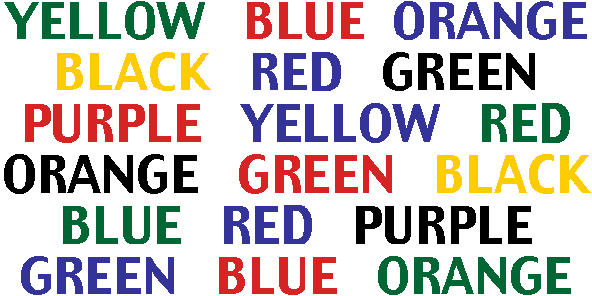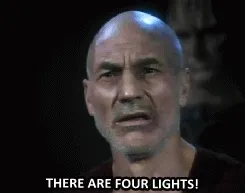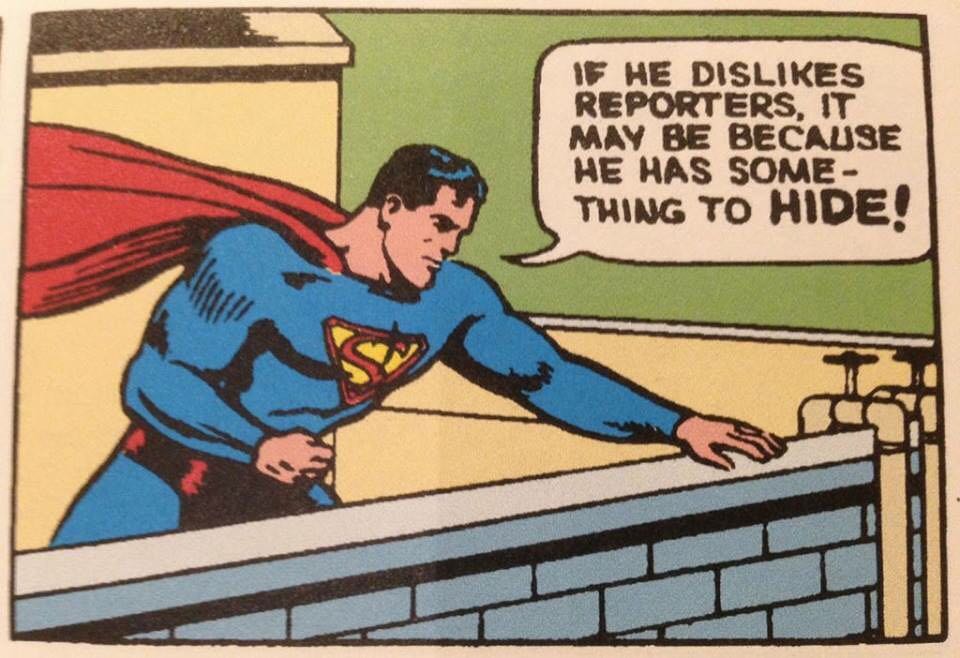Many people are fleeing social media, and my friend James Stanescu is trying to bring back blogging in response. He has an excellent post summarizing some of the differences between the pragmatisms of William James and C.S. Peirce. (I’ll call them “James” and “Scu” here for clarity.) Scu is drawing especially on Cheryl Misak’s capsule history, which itself is worth a read for reinvigorating the study of folks like Chauncey Wright and C.I. Lewis.
Peirce and James fought over the proper definition of pragmatism, as well as the term itself, but the simplest shared sense of the project is that truth and meaning are tied to use and inquiry. But Peirce emphasized inquiry, and James use, and that has made all the difference:
Peirce: “The opinion which is fated to be ultimately agreed to by all who investigate, is what we mean by the truth, and the object represented in this opinion is the real. That is the way I would explain reality.”
James: “The true is the name of whatever proves itself to be good in the way of belief, and good, too, for definite assignable reasons.”
I’m thoroughly with Peirce on this. But for Scu, ever the debater, this post is an occasion to also pick a fight with Peirceans on behalf of James:
Against Peirce’s metaphysical deflation, James gives us a metaphysical plenum. Pragmatism, for James, means living in a world that is disenchanted, re-enchanted, never disenchanted, never enchanted all at once. It means living in a world of scientific rationality and base materialism alongside the energies of God, all the Gods, things older than Gods, and beings that are yet-to-come. Horkheimer’s critique turns out to have some weight, James’ pragmatism makes the world both too subjective and too objective, both too rational and too mystical.
My sense is that Peirce is not really a metaphysical deflationist like the logical positivists. For one thing he spins up a very complicated system of triadic relationships as categories or conceptual schema, and for another thing, he was some sort of pan-psychist. That said, he was at base a Monist (THE Monist) and so in some very, very specific sense he’s more a deflationist than, say, substance dualists. But not really like the logical positivists or scientistic materialists would be. Still, his monism is in stark contrast with the pluralism of William James.
To suck the nuance out of these debates, it helps to wonder: to what extent is pragmatism relativistic? I think neither James nor Peirce are truly relativists, and I find the Rortyan shrug as irritating as everyone else did. But Williams James was… an enthusiast. He sometimes let himself write and say things that smacked of relativism–more in line with his radical empiricism than his pragmatism, to be honest–and some of his adherents have taken this too far.
Scu was partly provoked into writing this up by Patricia Lockwood’s review essay on Simon Critchley’s mysticism book. It’s one of those wonderful takedowns that shows off the reviewer’s erudition at the expense of the author:
…as the inquiry wore on I began to experience a hysterical sympathy: there was such a rhythm of anxious restatement, so much of Critchley telling you what he was about to do and then not doing it, such endless throat-clearing and adjectival gooeyness and such a tendency for his mind to explode whenever he encountered a juxtaposition like ‘the ravishing far-near’.
It seems that it’s a philosopher’s job to say every word three times, its opposite twice and then the original word again, italicised.
I loved the review, too, and so I guess she’s provoked us both. I’ve also spent more than a little time dabbling with mystic texts and traditions, and so I sometimes flirt with the academic study of the same–even though I can’t for the life of me find much value in it. There’s some kind of performative contradiction in studying such things.
Now, I think Scu’s post captures where I get off the bus with the Jamesean tradition–in both pragmatism and mystics. (While appreciating James’ psychology and his religious sociology all the more!) Ineffable spiritual traditions are fun to play around with, but the manifold claims of all the alternative practices that academics group together under that label can’t all be true! Most of them have to be false because they contradict each other, and I’m not impressed by efforts to embrace contradiction as some kind of deep logical wisdom. “Ah, yes, well after Gödel we must understand that contradiction exposes a deeper truth!” Sigh.
Here’s Scu again:
James’ system of verification and validation allows for a multiple ways of verifying something. If there are many processes that can arrive at different answers about if something is true, and there is no way to put these processes in some sort of hierarchy, we have utterly exploded the metaphysical possibilities of the world. We have therefore a multiverse, a pluriverse, a pluralistic universe (to use some of James’ terms). The world is, as James puts it, “ultra-Gothic.”
The line I hate most here is “there is no way to put these processes in some sort of hierarchy,” such that–as he goes on to explain–aesthetic and scientific modes of determining truth are unable to correct each other but are instead equally true.
Whenever I sit with relativists, I find that two things seem to be true of their position:
- They really want to preserve space for pluralism, and so their relativism is a usually a species of liberal toleration with some metaphysical baggage they’re not really willing to embrace. Sometimes they’re also motivated by fear of error: a wise caution to which they grant an unwise metaphysical status.
- They don’t really care what this costs people for whom the principle of a fixed, shared reality is a hard–fought and oft-missed goal: victims of false confessions or lying witnesses, citizens of tyrannical regimes with flimsy propaganda, mentally-ill individuals trying to sort out their delusions and hallucinations from the truth, eager scientists seeking truth amidst fraud, etc.
I know it seems arrogant to say “actually, your heart is not being pierced by the nails from Christ’s cross, you’re just hallucinating real good,” but that’s my position! And in some sense Scu himself recognizes that this kind of relativism/pluralism of “no actually lots of contradictory things are true” runs into its own arrogance problems. His own work depends on the idea that the exclusion of alternative forms of experience leads to error and, in fact, to evil! For instance, there are true claims to be verified about animal cruelty that a thoroughgoing relativist would be tempted to ignore because so few people are really interested in them. But I maintain that genteel relativism is an attempt to one-up folks just trying to make sense of our shared world by saying that actually we don’t need to share it at all: everyone gets their own.

For the things that matter, like fascism or climate change, that’s not really true. It’d be nice if the folks who don’t believe in global warming weren’t polluting the same world as the folks who do, but the tragedy of existence–and its joy!–is that we must share one world. No one sane and good is ever a relativist or a (Jamesean) pragmatist about criminal guilt or innocence, about child abuse and the Satanic panic, or about vaccines. Relativism is always reserved for some other stuff that’s off to the side, like whether a particular artwork is beautiful.
(Scu cites Kandinsky’s aesthetics here, right on cue: K: “It is also exclusively from this inner standpoint that one must answer the question whether the work is good or bad.” Which Scu glosses: “Kandinsky’s truth is every bit as true as any logical inquiry.”) It strikes me that we built aesthetics precisely to get such truly relativistic judgments out of the way for science and ethics and ontology.

Now, I say that as someone who really loves pluralistic work. I also love fiction, even science-fiction and fantasy! I want to inhabit a political world where plural life-worlds and sources of meaning can flourish, where people are constantly inventing and imagining something other than the pure scientific truth.
I’m also more than happy to acknowledge that the technocratic liberal reality principle tends to its own abuses: in a world of deepfakes and misinformation, fact-checking can go too far. We can be overconfident and “correct” a true claim by reasserting an error, or a value as a fact. In that sense, I think that fallibilism is just as important as pluralism, and that fallibilism requires a reality principle to which we can return, reconsider, and correct ourselves or be corrected by others. A relativistic world is one with few reasons to change your mind!
That’s why I say that, practiced badly, Jamesean pagmatism tends towards a kind of solipsistic arrogance: if every relation with the world bears its own form of verification from which there is no hierarchy, corrective, or escape, then there’s no outside from which to hear criticism and reconsider, either. Deliberation, doubt, critical reflection, and reconsideration are all missing!

It’s worth noting, here, that Scu’s Jamesean pragmatism is in service of his radical/weird empiricism, and ultimately a challenge to anthropocentrism:
Radical empiricism affirms the realness of relations.
Weird empiricism sees how these principles opens up a strange, bizarre, yes weird, pluriverse. One that can bring in the more than human world. Weird empiricism both sees the reality of our relationship to the more than human world (our relationship to other animals, but also ghosts, the sacred, imagined geographies, the dead and the undying). But also weird empiricism takes seriously the experience of the more than human world. That is, we can understand that other animals have a stake in claims of the truth because they can experience just as well as human. Though their truths may be alter than ours–weird truths from weird worlds.
And that idea, that animals have experiences that can act as a corrective to our epistemic and practical domination of them, strikes me as requiring fallibilism and ultimately undermining relativism. So I think what Scu says makes it clear that the terms of that pluralism can’t be metaphysical or ontological. I, too, want to enable as many compatible life-worlds as are mutually compatible! But there’s a ground truth out there that makes those shared horizons possible.

